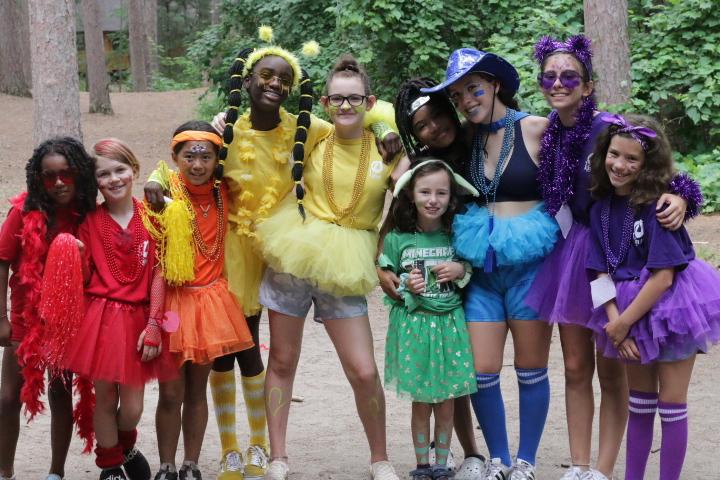Are you ready to give your daughter a summer camp experience she’ll never forget?
One of our greatest challenges as parents is providing opportunities for “kids to be kids”, gain independence and confidence, while also being safe. Summer camp is the best place to achieve those goals- and the “perfect” camp for your child is out there!
Choosing the perfect summer camp can be a daunting task, but with the right guidance and planning, you can ensure a fulfilling and enjoyable experience for your camper. Here are some of our best tips from years of meeting families and answering questions at Camp Kamaji. Let the adventure begin!
Key Takeaways
- Explore your child’s interests and passions to find the perfect summer camp,
- Encourage physical activity, creative pursuits & STEM skills for a meaningful experience- opportunities to try things she doesn’t do when home.
- Research accreditation, safety measures & logistics for an enjoyable and safe camp adventure
Identify Your Child’s Interests
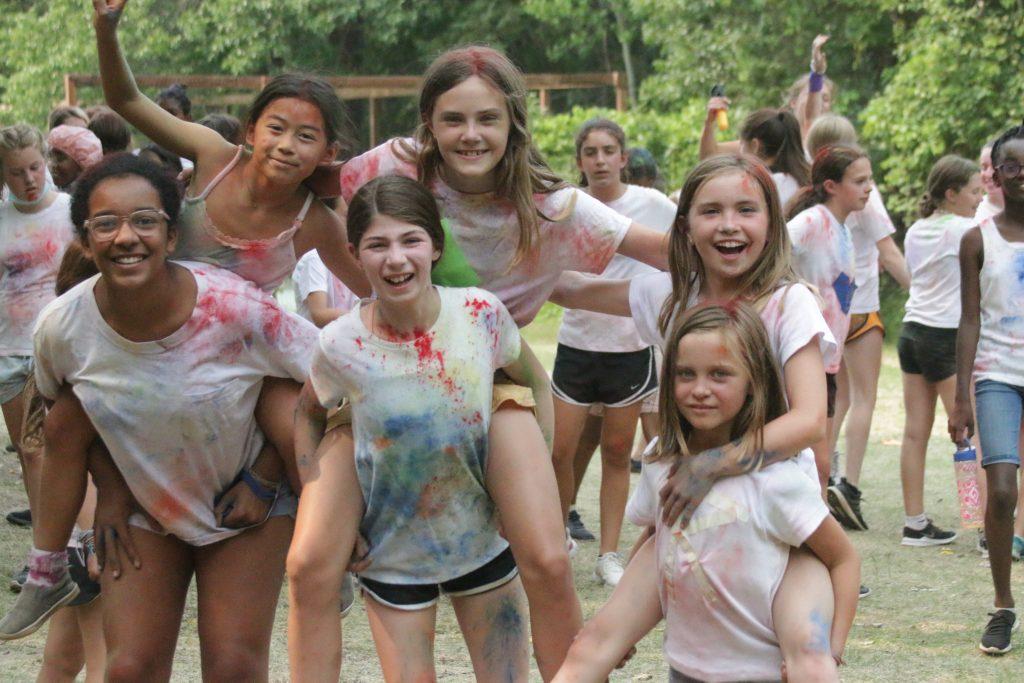
Kamaji girls having fun at summer camp
As parents, we want our children to have the best summer camp experience possible. For this, zeroing in on your child’s interests and passions is key. Encourage them to express their interests at specialty camps, such as sports, arts, or STEM-focused camp programs, and explore these interests further. Consider their activity level, comfort with large or small groups, and outdoor or indoor preferences.
This way, they’ll have a meaningful summer full of exciting opportunities like swimming, making new friends, and increasing their STEM skills. Also consider camps that offer a wide range of activities so campers can participate in activities they know they already enjoy while also discovering new interests they might not try otherwise.
At Kamaji, we offer a wide variety of activities not commonly available at home to help girls explore their interests and stretch their confidence by helping them experience new activities along with camp activities where they already excel.
Sports and Outdoor Activities
For children who thrive in the great outdoors, consider camps that offer a variety of sports and outdoor activities. Some examples include:
- Swimming
- Tennis
- Archery
- Basketball
- Horseback riding
There’s no shortage of activities to keep your camper engaged at Kamaji.
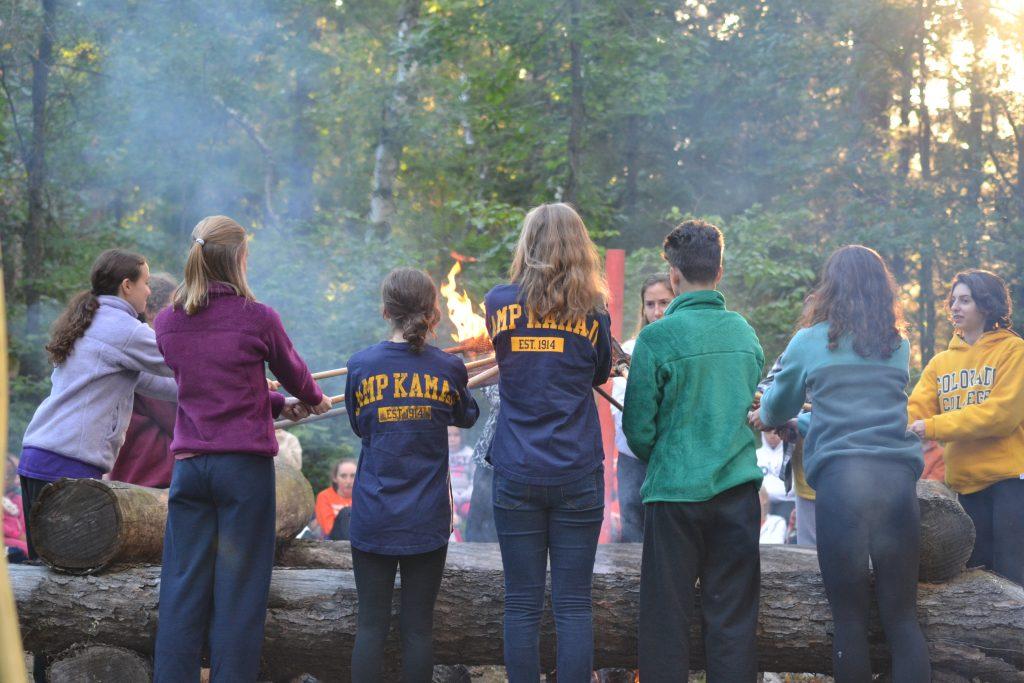
Kamaji weekly campfire at our all-girls summer camp
In Northern Minnesota, for example, summer camps take advantage of lake-front properties where campers learn to enjoy and also respect the water. Kamaji is no different on the shores of Wolf Lake. This ensures your child stays active, engaged, and forms new friendships while outdoors without the pressures or dependence on technology.
Arts and Creative Pursuits
If your child has a passion for the arts, look for summer camps that focus on arts and creative pursuits. These camps offer a wide range of programs such as:
- Visual arts
- Performing arts
- Music
- Dance
- Theater
- Calligraphy
They can even try unique activities like arts, drama, photography, or performance styles they haven’t considered before.
At various Minnesota camp programs, there may be unique opportunities for children to immerse themselves in the vibrant arts scene. Nurturing your child’s artistic talents and passions aids in their creativity and self-expression development at camps in the twin cities.
STEM-focused Programs
For children fascinated by science, technology, engineering, and mathematics (STEM), consider enrolling them in a STEM-focused summer camp. These camps provide hands-on experience in subjects like computer programming, robotics, and digital media, helping your child develop valuable skills for their future.
In a rapidly changing world, fostering problem-solving, critical thinking, and creativity through STEM-focused programs is essential. Choosing a camp that offers these learning opportunities paves the way for your child’s success in our technology-driven world.
Consider Financial Factors and Set a Budget
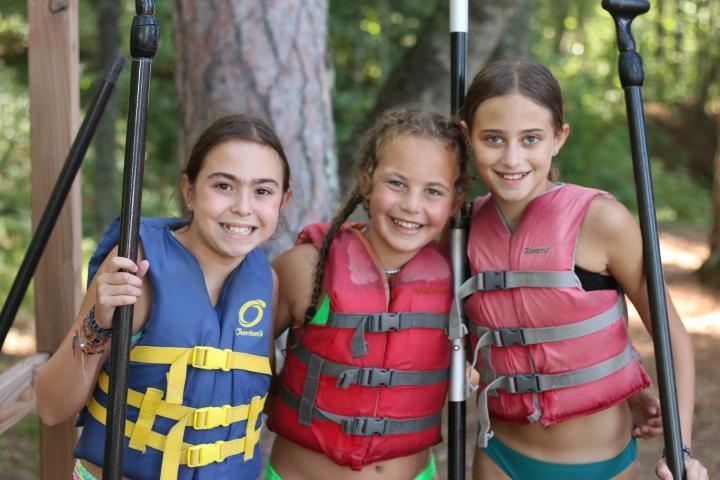
Ready to hit the water at Camp Kamaji
Once you’ve identified your child’s interests, it’s time to set a budget for their summer camp experience. Keep in mind that financial factors like transportation, meals, insurance, and spending money need to be factored into your decision. Setting a budget can help you find a summer camp that is both cost-effective and high-quality, ensuring a wonderful experience for your child without breaking the bank.
Planning ahead and considering all potential costs will allow you to confidently select the best summer camp that fits your family’s financial situation. It is important when looking at the cost of camps you consider what the “hidden” costs of what you would spend on your child if she were at home: food, babysitters/short-term programs or classes, fuel to drive your children from place to place, and don’t forget the often forgotten “cost” of trying to piece together a fun, engaging, convenient, local schedule for each of your children.
Research camps whose tuition rates fit into your family’s budget. If you have any concerns about the financial cost of summer camp, ask the summer camp director if there is any financial assistance available. Kamaji participates in a couple of different scholarship programs that make sleepaway camp available for children who wouldn’t have the opportunity otherwise. Chat with Kat (our camp co-owner and Kamaji Alumni) about that option here!
Day Camp vs. Overnight Camp
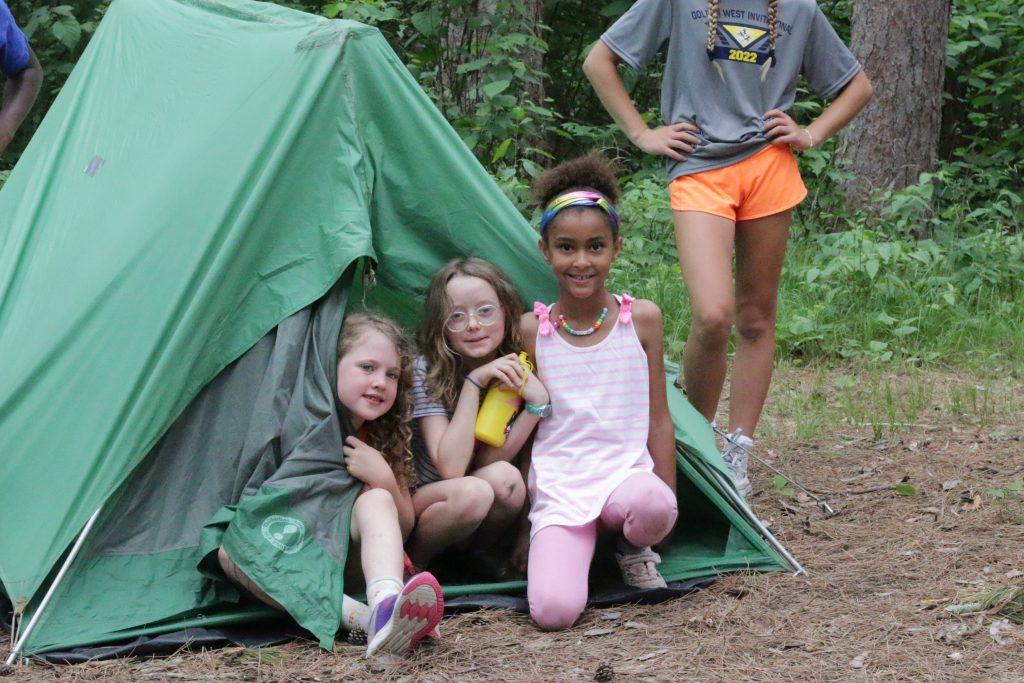
Kamaji campers learn about how to set up a campsite
Another important aspect to consider when choosing a summer camp is whether to opt for a day camp or an overnight camp. Day camps offer fun and friendship during the day, especially for younger children, while overnight camps allow for exploration and memory-making over a few days or weeks.
Most children are ready for an exciting overnight camp experience around the age of 8 or 9, although some mature 7-year-olds may also be ready. Day camps usually seem more budget-friendly, but your child’s age, readiness, and your family’s needs should be taken into account when making a decision.
Weighing the pros and cons of each option can help you find the best fit for your child’s summer adventure.
Kamaji encourages girls to be who they are without the noise and distraction of technology. While day camps have their place, they’re not as immersive as overnight camps where campers aren’t switching between camp life and personal life every day. It allows campers a chance to truly unplug and yet feel connected to the people around them.
For your girl to truly learn to be who they are, there is no better alternative to a sleepaway summer camp.
Research Camp Accreditation and Safety
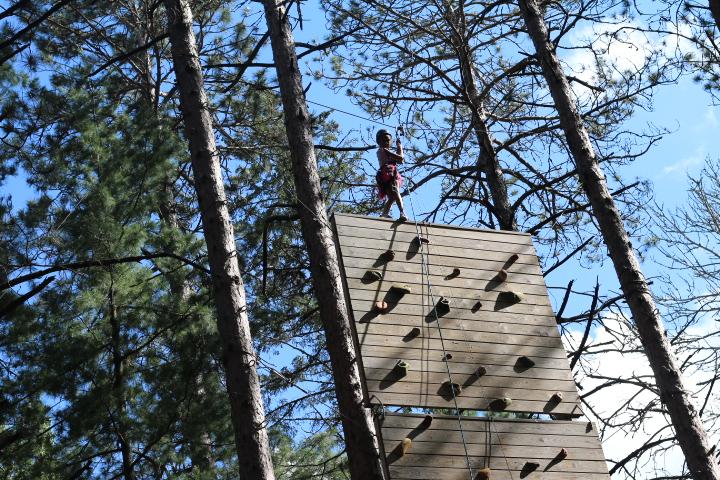
Safety first at our Camp Kamaji rock climbing wall
Ensuring your child’s safety and well-being is a top priority when choosing a summer camp. One way to guarantee a safe and enjoyable experience is by researching the camp’s accreditation and safety measures. Camps accredited by the American Camp Association (ACA) meet hundreds of stringent health and safety standards, ensuring your peace of mind.
ACA-accredited camps like Camp Kamaji take extra steps to ensure the safety of their campers. They require a health history or physical examination before anyone can attend the camp. And perhaps most importantly, there is strict guidance on necessary safety and training guidelines for the camp and its staff. Opting for an ACA-accredited camp gives you the confidence that your child will have access to the highest-quality camps in the nation. Visit www.acacamps.org to learn more about accredited summer camp opportunities.
Logistics and Location
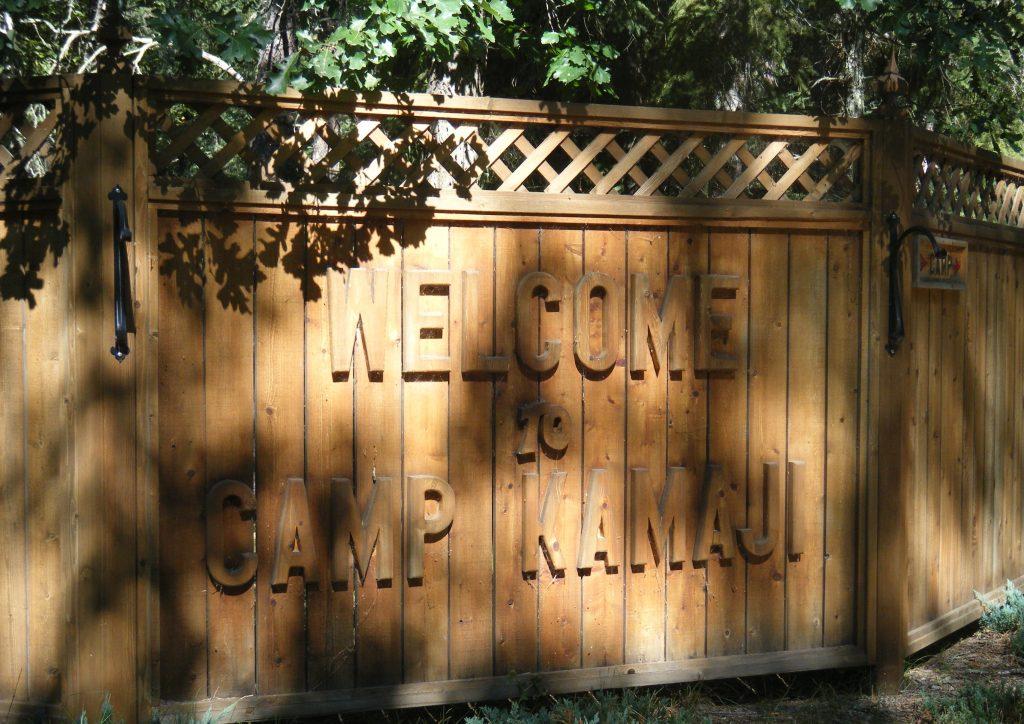
The first welcome sign to Camp Kamaji girls camp
Logistics and location play a significant role in choosing the perfect summer camp for your child. Consider the following factors:
- Convenience of pick-up/drop-off points or travel coordination by the camp
- Proximity of the camp to your home or local airport
- Flexible scheduling options
Additionally, many camps can accommodate family vacations or trips by allowing you to cancel a few days or a week, depending on their policies. Taking these factors into account can make the camp experience more convenient and enjoyable for your entire family.
Special Needs Programs
Children with disabilities or have medical conditions which require specialized attention deserve an equally enjoyable and engaging camp experience. Special needs programs are designed to provide a safe and supportive environment for these children, offering specialized activities, equipment, and staff to ensure their needs are met and children thrive at camp. Opting for a camp with a special needs program guarantees full participation in camp activities and necessary support for your child with disabilities or medical conditions, ensuring a successful summer experience.
Cultural and Language Immersion
Exposing your child to new cultures and languages can broaden their horizons and foster global understanding. Cultural and language immersion camps provide an enriching experience, allowing children to explore a new language and culture deeply. These camps nurture empathy, open-mindedness, and help children become global citizens.
Enrolling your child in a cultural and language immersion camp paves the way for enhanced language proficiency and improved cultural understanding.
Visit and Communicate with Camp Leadership
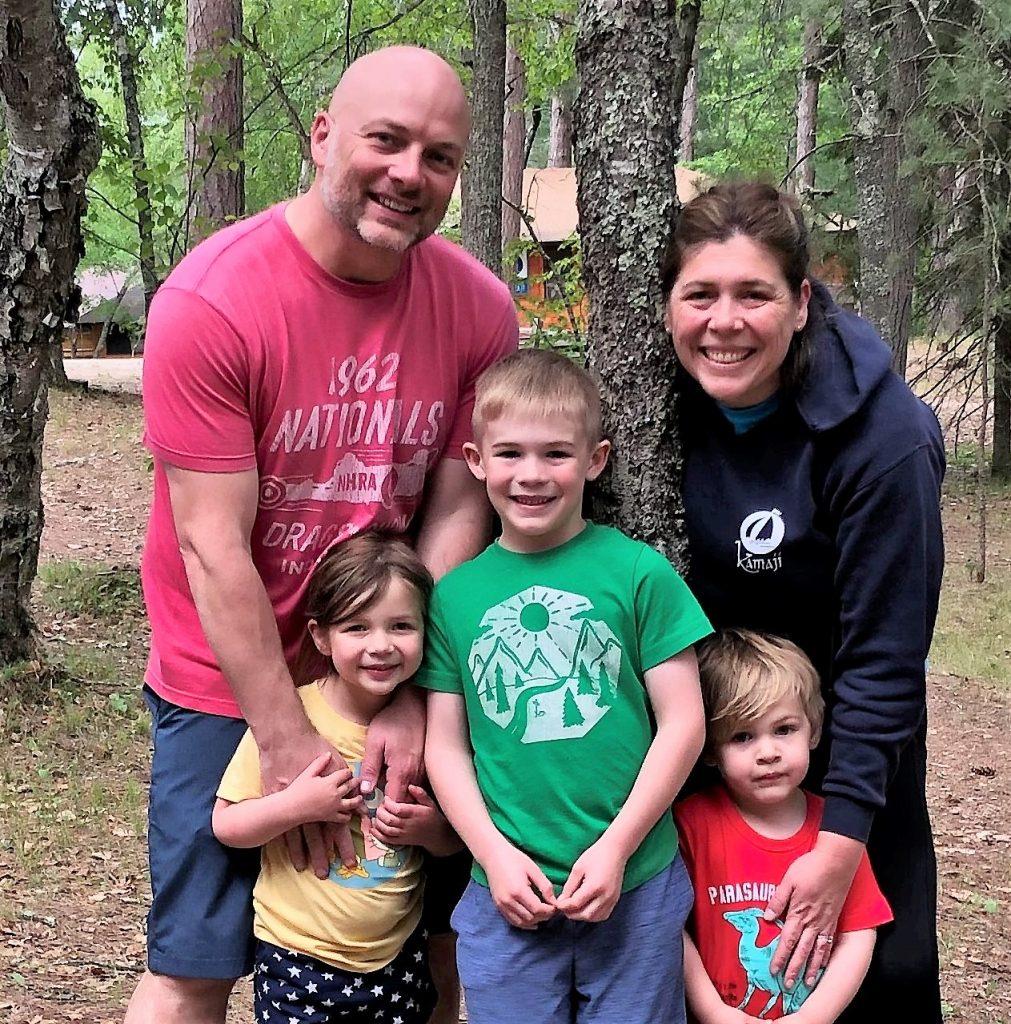
Directors of Kamaji: Kat and Jason with their family.
Before making a final decision, it’s key to meet the camp directors and ask plenty of questions about the camp and camp staff. Doing so can give you great insight into the facilities, programs, and overall atmosphere, ensuring it’s the perfect fit for your child. Many camp opportunities look similar “on paper”- have a conversation with camp directors and current camp families to distinguish a camp’s personality.
Ask the camp director about the camp’s retention rate, activities, and programs available for kids a few years ahead of your child’s age to gauge their growth potential at the camp. It is also important to ask about how the camp would handle a camper who is homesick or if campers aren’t getting along. Word of mouth from campers or staff can also provide insider knowledge that can be invaluable in finding the best summer camp for your child.
Pick a time for a zoom call with Kat (co-owner and Kamaji Alumni) and ask all of your questions about Camp Kamaji, or check out our FAQ page here if you’re not sure what to ask.
Prepare Your Child for Camp
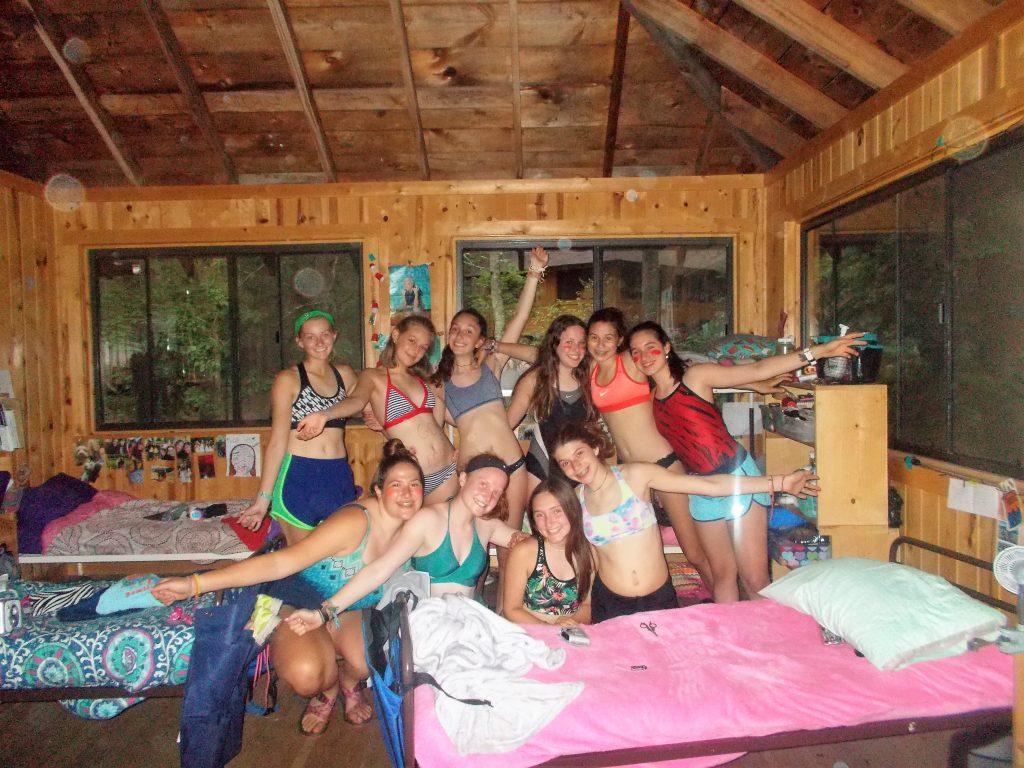
To pave the way for your daughter’s successful summer adventure at an all-girls camp like Kamaji, preparing her both emotionally and practically is crucial. Here are some steps you can take:
- Discuss the possibility of homesickness and remind them that they can stay connected with family members by writing and sharing experiences. Discuss the opportunity to miss home AND have fun, AND, learn new skills, AND make long-lasting friendships with people from all over the world.
- Ensure they pack what’s included in the camp packing list, including comfortable and durable clothing, proper footwear, and any necessary items for a comfortable sleep. Make sure your camper is involved in the packing process.
- Ask your daughter about potential concerns and ensure she has time to think about and talk through those concerns, connect your camper with the camp director to feel a sense of connectedness and ownership of the experience.
By taking these steps, you can ease any anxiety or homesickness your child may experience and set them up for an unforgettable summer journey.
Summary
Finding the best summer camp for your child involves considering their interests, setting a budget, weighing the pros and cons of day and overnight camps, researching accreditation and safety, taking logistics and location into account and also considering the goals you have for your child and her experience. By following this guide, you’ll be well on your way to ensuring a fulfilling and enjoyable summer adventure for your child, creating memories that will last a lifetime.
Frequently Asked Questions
How do I choose the right camp?
When choosing the right camp, consider factors like age range and activities, location and transportation, cost and financial assistance, staff qualifications, safety and health measures, as well as traditional overnight camps, day camps, and specialized camps such as sports, arts, and academics and the “personality” of the camp and its Leadership Staff.
What is the best age to go to summer camp?
Seven to twelve years old is the ideal age to begin summer camp, as this allows for the child’s individual maturity and personality to be taken into account. A conversation with camp leadership will help you determine your child’s readiness.
What is the downside of summer camp?
This is a hard one to answer since there is a summer camp out there for everyone! Summer camp can be expensive and learning to grow independence can be challenging for young people (and sometimes their parents). At Kamaji, we find that the anxiety of being away from family eases within the first few days as campers settle into their routine and develop a sense of a “home away from home”. Alumni campers are quick to include new campers into conversations and activities at this camp considered a place for “nice girls”.
What do parents look for in a summer camp?
Parents look for a variety of activities when choosing summer camps, so their children can explore and pick up new skills and interests. From arts and crafts to archery, sailing, and wilderness exploration, the possibilities are endless! We are also looking for opportunities for our children to have fun, be silly, meet new friends, grow independence and confidence and take a break from screens!
What financial factors should I consider when choosing a summer camp?
When choosing a summer camp, factor in expenses like transportation, meals, insurance, and spending money to create a realistic budget. Find out if there are “add-on” costs for specific activities or an expectation for tipping counselors.
Click here to learn more about Camp Kamaji. We’d love to talk with you about being your daughter’s home away from home this summer.

